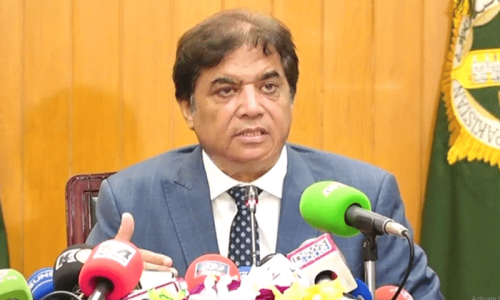WHAT began as a protest with a simple call to action — justice for Naqeebullah Mehsud — transformed into an astonishing movement as thousands from Fata and KP marched together to the federal capital. The now-concluded sit-in had a much greater grievance than bringing absconding police officer Rao Anwar to account.
Essentially, the protesters diagnosed the many malignancies in our CT strategy that have rendered us brutalised and inured to injustice. It is these eroded rights and unjust policies, which systematically disenfranchise the Pakhtun in particular, that laid the groundwork for the brutal murder of Naqeebullah.
Much of Fata has witnessed a battle raging between the militants and the military. Pakhtuns have paid a heavy price; caught in the crossfire, many among them have been subjected to extrajudicial killings and secretive detentions. Restrictions have been imposed on their movement, while thousands have fled their homes to find safer abodes. The protesters brought the case of these Pakhtuns to public notice.
While it may be premature to declare the protest a success, it still holds important lessons. First, despite having no clear leadership and presenting no sensationalist saviour-villain binary, the protesters were able to stay organised and on message.
This they managed through staging their resistance through the simple act of providing testimonies of their experiences. Young and old, men and women; all were invited to bear witness. Reminiscent of Bacha Khan, the conviction that the truth will out, without recourse to violence or partisanship, brought them much support across political, ethnic and class lines.
Because their demands were rights-based and focused on systemic reforms, they resonated for being inclusive and universal. Hardened political hacks should take note; this is how you build consensus.
Second, the protesters were able to subvert some of our most pernicious tropes: the colonial construct of the Pakhtun as unruly warlords; the neo-colonial hangover of profiling certain groups as being extremists; and the patrician narrative of protesting youth as little more than angry miscreants.
Although there have been allegations that the lack of televised coverage was the result of an enforced blackout, it is also possible that the cameras were not trained on this particular sit-in precisely because the protesters did not sate the appetite for spectacle over substance. But it is incumbent upon the media, the state and society to pay attention to this particular moment; this is what democracy in action looks like.
Published in Dawn, February 13th, 2018













































